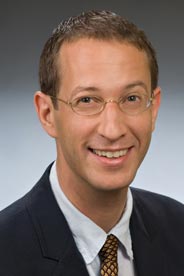American political, economic, and media leaders have used the claim of global anti-Americanism for over two centuries to silence critics who question America on the world stage. But is the anti-American claim real? We don’t hear complaints about “anti-Chinaism,” even as China comes to rival America’s international clout. American University historian Max Paul Friedman unpacks the anti-American claim. His findings may surprise you.
Early on, Friedman admits that anti-Americanism does exist. Some political philosophies, like Nazism and Bolshevism, have included open opposition to America, and American actions, as core principles. But such philosophies are predictable and boring. And they certainly don’t explain how so many putative American allies, like France and Germany, have become known as hotbeds of anti-American sentiment, especially in times of war.
Too often, American pundits have used the claim of anti-Americanism to silence dissent and avoid analyzing criticisms on their merits. By assuming irrational prejudice or ideological opposition from anyone who would criticize, Friedman says, American leaders have allowed themselves to not face the consequences of their actions, instead kicking the ball down the field to future generations. This has consistently resulted in Americans paying for rash actions.
At least in the post-war years, anti-American claims have focused on America’s fixation with Cold War dichotomies. Anyone who was less than a free-market absolutist must surely have been in bed with Moscow. Anyone who didn’t agree with American interests was treated as a dirty pinko Comsymp and enemy of the state. This consistently applied, even when America, or proxies like United Fruit, acted in ways that contradicted American well-being.
Nations like Vietnam or Guatemala, which initially wanted the autonomy America promised the “global North,” got tarred with anti-American labels. By dismissing honest criticism, America hastened the environment it inveighed against, as moderates and non-partisans found themselves marginalized. Globally, this reduces the debate to one between the hard right (often mistakenly called pro-American) and the extreme left. America inadvertently bred Communism.
 At home, McCarthyism chilled honest debate and silenced real solutions. Anyone who would pursue democratic, free-market reform has had to endure attacks; only advances which accord with acceptable doctrine were allowed any foothold. This spilled into how America treated other nations: France, for instance, was disparaged as a beachhead of Communism for warning America against entanglements in its former
colony, Vietnam.
At home, McCarthyism chilled honest debate and silenced real solutions. Anyone who would pursue democratic, free-market reform has had to endure attacks; only advances which accord with acceptable doctrine were allowed any foothold. This spilled into how America treated other nations: France, for instance, was disparaged as a beachhead of Communism for warning America against entanglements in its former
colony, Vietnam.This doctrinaire assumption that America must be right hasn’t much hurt America’s enemies. But it has stifled those who call the United States to uphold its own ideals: civil rights protestors, anti-nuclear activists, and global nationalists have all been called “anti-American.” Thus needed reforms, like equal rights for American minorities, have been impeded, and conflicts, like Vietnam and Iraq, have dragged on far longer than they should.
Fear of anti-American sentiment has also prompted America to meddle in other nations’ internal affairs. As early as the 19th Century, America so feared nationalist sentiment overseas that it squelched democracy in Cuba and the Philippines. This tendency increased during the Cold War. Guatemala wanted to foster American-style democracy and capitalism. But because they expropriated land from United Fruit, Guatemala was called “anti-American,” and attacked.
Friedman tracks America’s fears of anti-Americanism back to before 1776. Whenever anyone has second-guessed America’s ability to fulfil its own lofty rhetoric, or lamented its tendency to live out poor impulses, pundits disparaged them as anti-American. Charles Dickens was called anti-American because he had such grandiose expectations of America’s egalitarianism and justice that his disappointment was almost inevitable.
Anti-Americanism, at root, is a fallacy used to silence other arguments. Not that it’s false—actual philosophies have promulgated opposition to America just because it’s what they believed. But these have been far rarer than the rhetoric would have us believe, and as a result, all opposition, no matter how relevant or truthful, has been reduced to the level of Nazism, easily dismissed. Debates stall on a national and global scale.
If America would advance its interests internationally; if America would oppose totalitarianism and promote democracy; if America would be the shining city we’ve imagined, America must accept criticism. We don’t know everything about other nations and cultures. We can’t see them in their own terms. As the War on Terror succeeds Cold War, America’s need to speak frankly with, and listen clearly to, other nations has never been greater.
Friedman doesn’t preach weak-water internationalism. He just wants America to believe its own promises. America, as a principle, is about inclusion. When obstructionists cry “anti-Americanism” to exclude people and ideas, America suffers for such blindness.

No comments:
Post a Comment